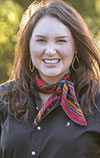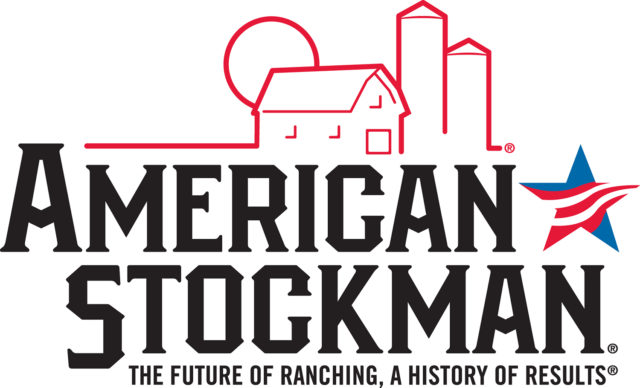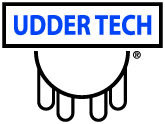However, the partnership between the seller and purchaser should not stop after the transaction; in fact, that should be the beginning. Although the producer has searched and located the right bull for their program, they may still have these questions for the breeder:
- How long will I be able to use this bull?
- How will his genetics add to the bottom line?
- What should I expect from these genetics?
A reputable breeder will be knowledgeable in these areas and should accommodate the buyer in answering these questions.
My father always taught me that one of the most important elements of marketing livestock is to conduct a site visit at a customer’s operation to better understand their program. Conducting a site visit lets the customer know you have interest in them and their operation, and that you are attentive to their marketing needs.
This is also a great time to cultivate any possible future marketing of the progeny of the bulls in the future, as this continues a good relationship between the buyer and the seller, allowing benefits from each other’s services.
A reputable breeder often possesses outlets which like to purchase genetics from their program.
When asking producers what they like in a successful bull sale, most responded with the following:
- The desire to work with a reputable breeder
- The ability to purchase bulls from a program that will stand behind their product and genetics
- Creating a long-term relationship between the breeder and the buyer
- Assistance in future marketing options
In talking with several producers, I asked them how far they would travel for a bull sale and the reasons behind their responses. The answer the majority of producers shared was that most people were willing to travel the necessary distance to receive the best quality.
However, distance should not set you apart from selecting the best genetics. If genetics are equal, a closer geographical area is recommended as this may help ensure proper acclimatization of the bulls. Technology can also be an effective way to view bulls through pictures, videos and online sales.
Today’s prospective buyers can evaluate options, research breeders and consider price range before making a selection. By doing the homework, there are many avenues to use to find the best bull for your program.
“Bull purchases are most successful when buying from honest, data-driven seedstock producers,” says Tommy Perkins, executive vice president at the International Brangus Breeders Association.
“Selection of potential herd sires should include evaluation of well-balanced expected progeny differences which will improve upon the traits most desired or needed to meet your marketing goals.”
As always, you want to make sure that all bases are covered on health and biosecurity concerns when purchasing livestock. To do so, you must make sure all bulls meet animal health commission standards set by each respective state.
Each state is regulated differently, so before travel and shipment is made for the bulls, checking on these regulations is a must. Some producers will also conduct comprehensive testing upon the completion of their sale so that the bulls can be confidently shipped to any destination.
Not only do customers want a bull’s health verification, but it is imperative they also know the performance data of the bull they are purchasing to ensure it will meet the needs of their herd.
Parker Friedrich, with Parker Friedrich Marketing and Consulting, states, “Good data is essential. The bull-buying public wants good, honest data that has some merit to it, so they can buy with confidence.
Bull buyers want birthweights, weaning weights, yearling weights, scrotal measurements and carcass data.” This information can validate that they are buying into the genetics that will work best for them.
Simplifying paperwork is a goal in most transactions, but a task that is very important yet often overlooked before, during and after a bull sale is efficient record-keeping. Proper identification of the bull is obviously something that must be a focus before the start of the sale.
During the sale, it is critical to keep accurate records of the data pertaining to the bulls, sellers and buyers. Some of this information might include the following:
- Correct names and spellings
- Address (physical and mailing)
- Good phone number (home, work, cell)
- Email addresses
Another key component to good record-keeping is ensuring all bull registration papers are correct and ready to be transferred in the buyer’s name after the sale. It is also imperative to be clean in your accounts receivable and ensure that proper settlements are made before the bull leaves the premises.
Good record-keeping during this process is a must.
Selecting the best bull can seem to be a daunting task at first look, but the reward comes when the first calves hit the ground, exhibiting the potential and future of your herd. This was something I learned first-hand growing up on a 200-plus head registered Angus operation in Texas as well as a family-owned livestock market.
Our family worked diligently to grow our herd to the size that it is today, and a key necessity was selecting the right bull.
Like many registered operations, we have been raising our own bulls for many years and continue to have annual bull sales while consulting for other sales. The key goal is to treat each bull customer with personal service, whether it is a repeat customer or someone purchasing the first bull to start a herd.
One key principle to remember is that you must have confidence in your program and your genetics, and feel comfortable with your ability to make your program the best that it can possibly be.
Friedrich added the following: “Stand behind your product and treat people the way you want to be treated. Sometimes it’s a hard pill to swallow, but in the long run it will create return business.” Words to live by when purchasing or selling bulls. ![]()
PHOTO: Today’s prospective buyers can evaluate options, research breeders and consider price range before making a selection. Photo by Paul Marchant.

-
Stephanie Lastovica
- Freelance Author
- College Station, Texas
- Email Stephanie Lastovica







